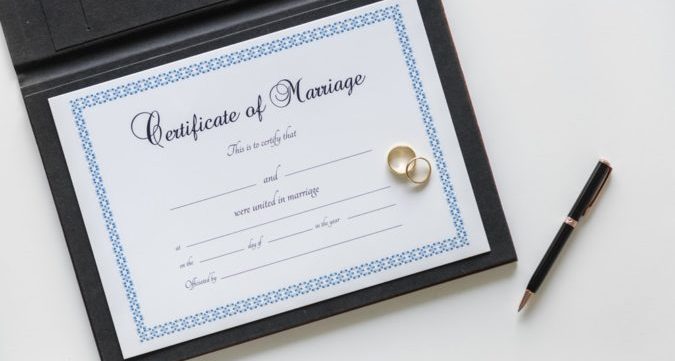 Holly Mieville-Hawkins is a senior associate in the Enable Law Mental Capacity team. and she specialises in acting for both children with brain injuries, and adults who have lost capacity. Here Holly considers a recent case that focused on what a person needs to understand about the effect getting married has on their estate when they die, and the rules regarding capacity to marry.
Holly Mieville-Hawkins is a senior associate in the Enable Law Mental Capacity team. and she specialises in acting for both children with brain injuries, and adults who have lost capacity. Here Holly considers a recent case that focused on what a person needs to understand about the effect getting married has on their estate when they die, and the rules regarding capacity to marry.
The law is very clear that when a person gets married, in most circumstances, the marriage will revoke any existing will (s.18 Wills Act 1837). The only exception to this is where the will is made in anticipation of said marriage. Without a valid will, a person is left intestate, which is a set way in which a person’s money will be left when they die. The intestacy rules tend to benefit any spouse or civil partner, over any children from that or a previous relationship.
Until recently, no case had examined whether a person needs to be actively aware of the fact that marriage revokes any previous will, when the marriage takes place. Previous cases had focused on whether each party to the marriage is able to understand that marriage is a contract, whether each party understands that marriage brings with it certain financial and social duties and responsibilities towards each other, and that to be able to marry, each party must have capacity to enter into a sexual relationship.
A Legal Example for the Capacity to Marry
Arguably the most famous case to date on the issue of capacity to marry is Sheffield City Council v E & Anr [2005] 2 WLR 953. In this case, Munby J expressed very clearly that :“There are many people in our society who may be of limited or borderline capacity but whose lives are immensely enriched by marriage. We must be careful not to set the test of capacity to marry too high, lest it operate as an unfair, unnecessary and indeed discriminatory bar against the mentally disabled.”.
The recent case, which focused on a person’s knowledge of the effect that marriage has on their will, was reported in two parts, Re DMM [2017] EWCOP 32 and Re DMM [2017] EWCOP 33, and was heard at the Court of Protection sitting in Bristol. The subject of the proceedings, DMM, was an 84-year-old man, who is a retired insurance broker. At the time of the hearing, DMM had been with his partner, SD, for over 25 years, and during this time, they had happily co-habited together but had not married, having both been married before.

In late 2016, they decided to marry, and obtained an assessment of capacity to support this decision, as DMM had received a diagnosis of Alzheimer’s disease some years previously. However, DMM’s three daughters from his previous marriage did not think that their father had mental capacity to make the decision to marry, and obtained an order in the Family Division of the High Court preventing this marriage from going ahead.
Due to concerns about DMM’s capacity to marry, the case was then moved to the Court of Protection, and on 14th July 2017, Mr Justice Marston confirmed that DMM’s required understanding of the potential financial consequences of marriage should not need to be ‘too refined an analysis, asking to take too many hypothetical situations into consideration’, as this sets the bar too high. However, DMM was required to have a basic factual understanding that on marrying SD, his existing will would be revoked. He concluded that ‘I therefore find that the fact that a second marriage revokes the will is information that a person should be able to understand, retain, use and weigh to have capacity to marry.‘.
The judgement was clear that the test for capacity to marry should be in line with the Mental Capacity Act 2005, and not exist as a test on its own. The current guidance that is issued to registrars in England and Wales does not cover the above issue, and therefore, it is likely that a change will now be required in the guidance that surrounds marriage going forwards.
Speak to Our Mental Health Solicitors About the Capacity to Marry
Enable Law represented the first respondent in this matter and instructed Abigail Bond at St Johns Chambers.
Our team of mental health solicitors here at Enable Law have a wealth of experience representing clients in cases where there are issues regarding Mental Capacity, in respect of their finances, property and healthcare decisions, including where to live. Get in touch today to learn more about mental capacity to marry, or any of these issues.


















